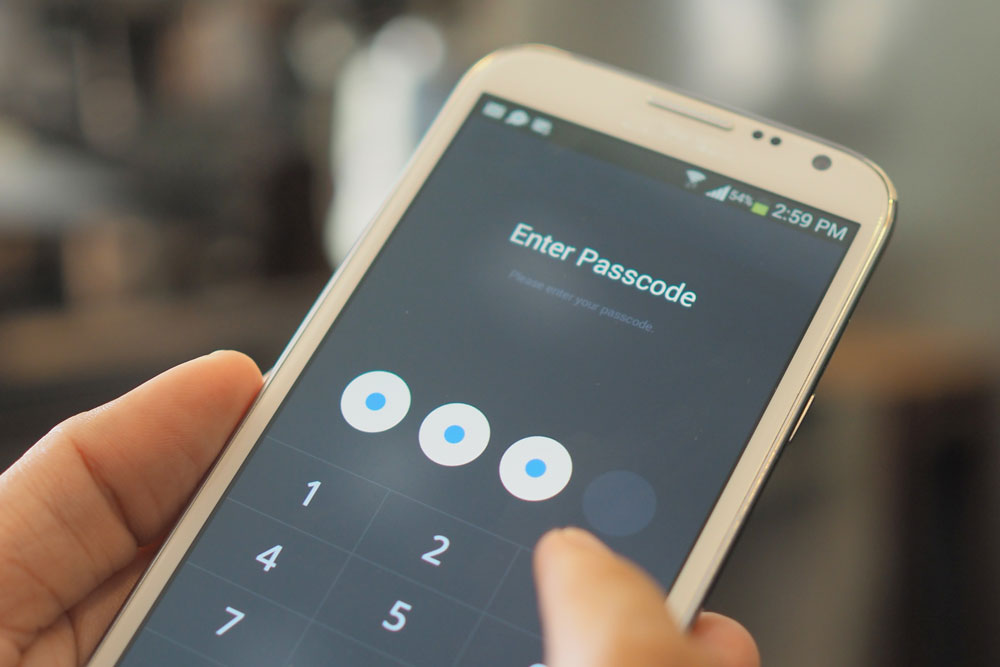A common theme of my rants is where the rights of citizens of this country fall within the framework of the police and their power to investigate alleged offences. Thankfully, there are limits on what the police can compel a suspect to do and there are many things that a citizen doesn’t have to do and will not be punished by the police for not doing it. This includes the fact that you don’t have to give the police access to your cell phone if it is locked with a passcode or swipe pattern.
Your grandmother’s cousin’s hairdresser’s birth date can not be compelled by the police, if that is your phone passcode. Similarly, your favourite 9 number pattern, maybe a backwards “y” or upside “w” (that’s right, it’s an “m”). First and foremost the police need a warrant to search your phone. With a warrant in hand, the next step is to get into the phone. Cell phones these days are much more than simply a device used to call home. They are powerful computers that have the ability to store all types of personal data. Personal data is protected by the Charter. If the phone is locked with a passcode or swipe code then the police will need the code. The holder of the passcode cannot be compelled to convey a thought in their head. They cannot be compelled to speak their mind, sharing their personal, private knowledge of the passcode with the police. Forcing a person to share that knowledge violates the right to silence. The Charter prevents the police from compelling an accused to participate in their own prosecution. This principle is well established in Canadian case law. Locking your phone with a distinct passcode or swipe code that is kept private will prevent unwanted eyes from seeing your personal information.
Police searches can lead to troublesome evidence. The Crown has the burden to prove that the search is legitimate. If it isn’t then it is likely that the Court will eliminate this evidence from their innocence evaluation. If you are subject to prosecution based on a police search you need a lawyer who understands the legal framework and isn’t afraid to call out inappropriate police action. The team at Cake Criminal Defence is prepared to take on the fight and will do what is needed to ensure the police are held accountable.
I don’t often write disclaimers but in this case it is important to note though that the case law is not the same when it comes to biometric identification options, like the face scan or when the device is seized at the border. It is no big surprise that technology is evolving faster than the law and, as such, there will be the need to evaluate what constitutes a search or what is compelled as biometric identifiers become more commonplace.


Recent Comments